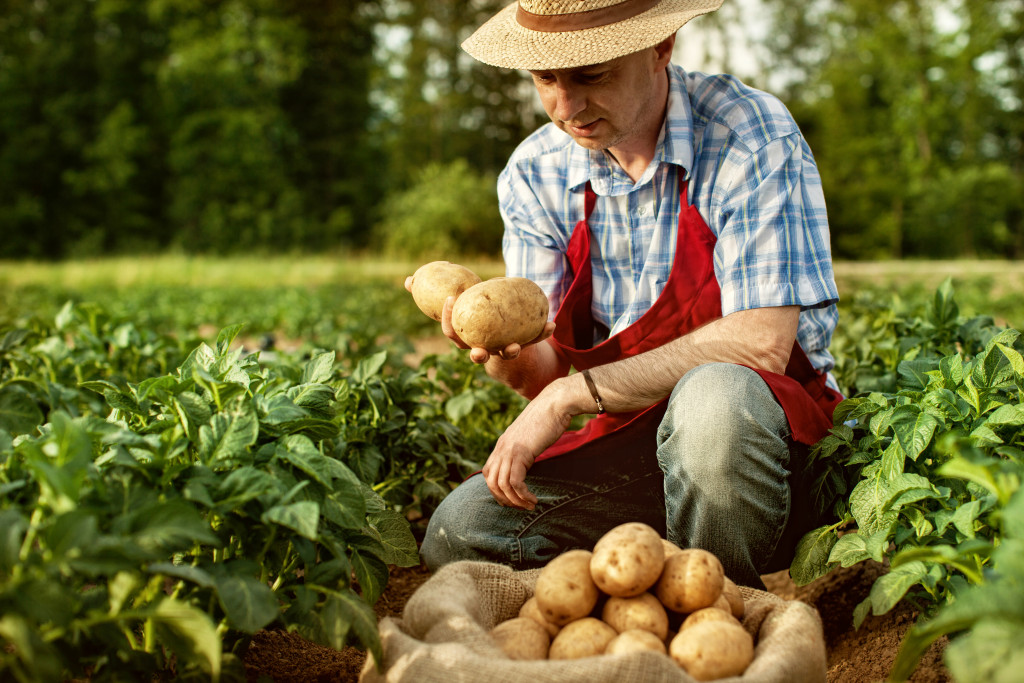With the current interest in organic and locally grown foods, starting a farm has become a popular business venture. But if you’ve never done it before, the process can seem a bit daunting. However, it can be a successful endeavor with enough information and planning. Here are six tips to help beginners get started in this challenging yet fulfilling industry.
Do your research.
Before diving in, it’s essential to research and learn as much as possible about farming. Of course, you can’t know everything from books and the internet, but it’s an excellent place to start. There are also many programs and workshops available that can teach you the basics of running a farm.
It’s best to know the ins and outs of running a farm, from the day-to-day tasks to the more long-term planning. Especially if you’re new to the industry, this knowledge will be invaluable as you get started.
Many first-time farmers make the mistake of getting into the business without doing their research first. As a result, they can quickly become overwhelmed and even fail. So if you don’t want to struggle on this path, take your time and learn every corner. Sooner or later, you’ll be on your way to success.
Pick the right location.
The success of your farm will largely depend on its location. Before setting up a farm, you must consider the climate, soil, water availability, and proximity to markets. For example, if you want to grow crops that require a lot of water, you’ll need to be near a reliable water source. If you’re planning on selling your produce at local farmers’ markets, you’ll need to be nearby potential customers. And suppose you’re hoping to sell your products to restaurants or grocery stores. In that case, you’ll need to be within a reasonable distance of their distribution centers.
In short, there’s a lot to think about when choosing a farm location. But if you take the time to do your research and pick the right spot, it will pay off in the long run.
Utilize existing resources.
You don’t need to start from scratch when setting up your farm. Many existing resources can be beneficial, especially for beginners. For example, if you’re starting a small farm, you might be able to rent land from a local farmer instead of purchasing it outright.
You can also buy used equipment instead of new, saving you a lot of money. Plus, many government programs offer financial assistance to farmers. Do your homework and see what’s available to you; it could make starting your farm a lot easier—and more affordable.
Schedule maintenance and repairs.
Farming equipment is expensive, and buying the latest and more advanced models is not practical. That’s why it’s essential to take care of the equipment you do have. Scheduling regular maintenance and repairs can help prevent costly surprises down the road.
And this not only equates to heavy machinery. Farming essentials, such as well pumps and irrigation systems, must also be adequately maintained. Luckily, many service providers offer well pump repair services and other essential upkeep for a reasonable price.
It might seem like an extra effort, but it will save you money and keep your farm running smoothly in the long run.

Create a marketing plan.
No matter how great your products are, they won’t sell themselves. It would be best to let people know what you’re offering and why they should buy from you. Creating a marketing plan is an essential step in starting—and growing—your farm.
There are many ways to market your products, from setting up a website or social media accounts to participating in local events and farmers’ markets. The important thing is to be creative and get the word out there however you can.
The more people know about your farm, the more likely they will become customers—and that’s the key to success.
Start small and expand gradually.
Many new farmers mistake biting off more than they can chew. They try to grow too much, too fast and end up overwhelmed—and in debt. It’s essential to start small and expand as gradually as possible until you get a feel for the business.
You can always add more land, animals, and crops as you get more experience. But if you try to do too much at once, it will be challenging to keep up with the demand—and you’ll likely fail.
Running a farm is a lot of work but can also be very rewarding. If you take the time to do your research and plan ahead, you’ll be well on your way to success. These six tips should help you get started on the right foot. With a little hard work and determination, you can make your dream of starting a farm a reality.


